#Szeged
Explore tagged Tumblr posts
Text
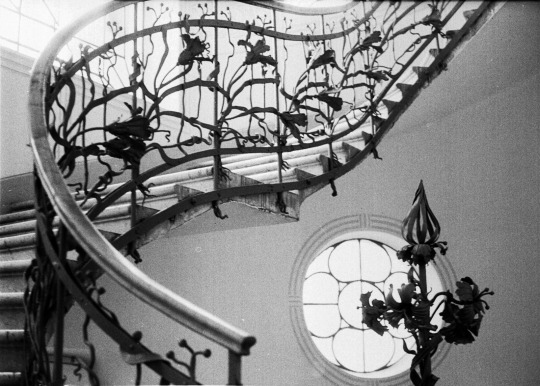
Staircase, Reök Palace, Szeged, 1976. From the Budapest Municipal Photography Company archive.
2K notes
·
View notes
Text



Szeged, Hungary
#the-solitude-universe#the solitude universe#magyar#tumblr#magyar tumblr#travel#szeged#hungary#flowers#2025#0402
59 notes
·
View notes
Text
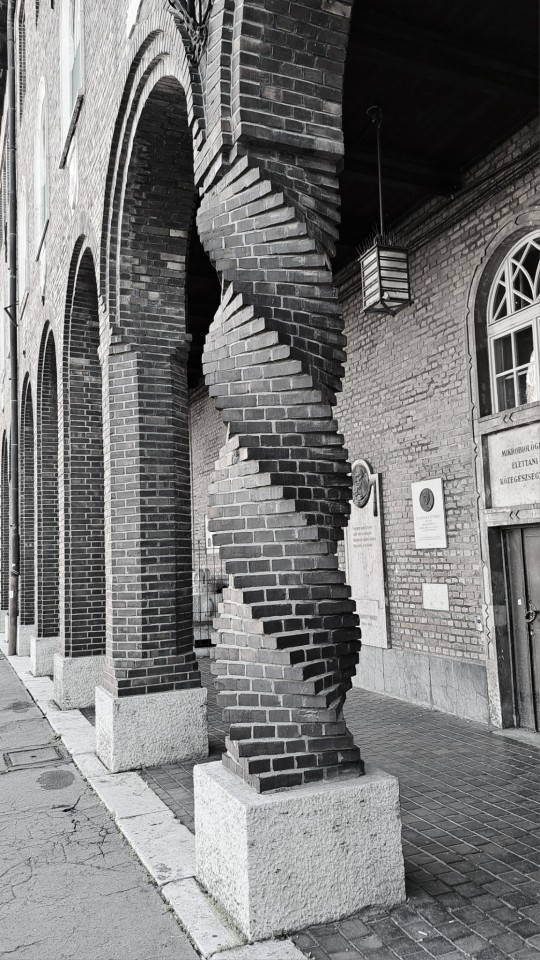
Szeged, Hungary
102 notes
·
View notes
Text

Szóval csináltam egy retro játszótér nyomat sorozatot, gondoltam itt is megosztom. 🌸
...
https://www.instagram.com/reka_baricza?igsh=MXc3bXowam5zb2Rzag%253D%253D&utm_source=qr
#hungary#magyar#art#my art#szeged#artist#artlife#artoftheday#artists on tumblr#artwork#original art#linoprint
35 notes
·
View notes
Text
Szeged nevezetességi ködben

Dóm

Bástya

Pogány induló

Hol a fa főnök? OTT VAN A BOZÓTBAN SZEDD ÖSSZEFELE DE HOGY AZ ANYÁDBA NÉZEL KI TE SZEMÉTLÁDA
38 notes
·
View notes
Text
Standout Moments from "Les Mis" Recordings: 1985-'87
In honor of the 40th anniversary year of the musical of Les Misérables (not counting the original French version), and following the example of @professorspork's Great Wicked Watch, I've decided to do a Great Les Mis Watch and Listen. Over the course of this year, I want to explore as many complete video and audio recordings of Les Mis as I can find, both official and bootleg, in chronological order from 1985 to the present day.
I've also decided to draw inspiration from @professorspork's Wicked Punctum Project. In her Wicked watch-through, she picks out small moments (or "punctums") from each bootleg that stand out for her the most. I've decided to do the same thing for Les Mis. As with the Wicked project, this one will cover some moments I love, some I dislike, and some that just stand out as unique, But since I can't resist going on and on, I'm writing longer rambles about each moment, and instead of just one at a time, I've decided to share a few at a time.
Let's start with the recordings from the musical's first three years, 1985, '86, and '87.
Original London Cast Recording
Colm Wilkinson (Jean Valjean), Roger Allam (Javert), Patti LuPone (Fantine), Alun Armstrong (Thénardier), Sue Jane Tanner (Mme. Thénardier), Frances Ruffelle (Éponine), Michael Ball (Marius), David Burt (Enjolras), Rebecca Caine (Cosette)

The beginning of “Look Down.”
That’s right. My moment doesn’t involve Colm Wilkinson, Patti LuPone, Michael Ball, or any of the other leads. It’s the opening verse of “Look Down,” because the way it’s performed sums up the tone of the OLC recording. The tempo is slower than it would later become on Broadway, and the beggars sing their pleas in an intimate, understated way. It doesn’t sound like a grand chorus in a mega-musical: it sounds like real homeless people on the street quietly begging for help. The prevalence of rough-sounding, unpolished voices among them enhances this quality. At this point, the show wasn’t Les Miz, The World's Most Popular Musical, it was just Les Misérables, A Musical, as its original poster read. Not a polished, mass-produced theatrical hit, but an intimate, gritty, earnest new adaptation of Victor Hugo’s novel. At least that’s the impression the OLC recording creates for me, and the slower, more understated rendition of “Look Down” typifies it.
Honorable Mention: The fact that in "On My Own," Frances Ruffelle sings "This world will go on turning" instead of "His world..." At first, I thought she was just singing "His world..." with her Cockney accent, dropping the H, but having seen video clips of her singing the song, I can confirm now that she sings "This." It means that the final verse isn't about Marius anymore: it's about Éponine feeling excluded by and insignificant to the whole world, with her unrequited love as just one aspect of it all.
1985 London audio bootleg (original cast at the Barbican Centre)
Colm Wilkinson (Jean Valjean), Roger Allam (Javert), Patti LuPone (Fantine), Alun Armstrong (Thénardier), Sue Jane Tanner (Mme. Thénardier), Frances Ruffelle (Éponine), Michael Ball (Marius), David Burt (Enjolras), Rebecca Caine (Cosette)

Colm Wilkinson’s soft and gentle “You will learn. Truth is given by God to us all in our time” in “In My Life.”
This bootleg of the show’s original, longer form is fascinating in many ways. But for me, the standout moment is a familiar one; Valjean’s response to Cosette’s plea to learn about the past in “In My Life,” which can be delivered gently, sternly, or even harshly depending on the actor. I prefer it sung gently, but I didn’t know what to expect from Colm Wilkinson in this early performance, especially because he sounds a bit stern in that scene on the Original Broadway Cast Recording. But that was probably because Judy Kuhn was a more forceful Cosette than Rebecca Caine. Here, he sounds impeccably soft, gentle, and fatherly on those final lines, which works perfectly with Rebecca’s always gentle, dignified, and sweet-toned Cosette. It’s also a striking contrast to the brooding intensity of his scenes with Javert. This early performance of Colm’s particularly contrasts the fire of Jean Valjean the convict with the calmness and kindness of his gentleman personas.
Honorable Mention: The different version of Gavroche’s death, which is more like the version on the French Concept Album. In it, Gavroche sings a reprise of "Look Down," in which he first dismisses the National Guardsmen as idiots and again insists that he "runs this town," but then gets shot and realizes he's dying ("They've got Gavroche at last"), and then sings just two feeble lines of "Little People" with his last breaths.
1986 London audio bootleg
Colm Wilkinson (Jean Valjean), Roger Allam (Javert), Jackie Marks (Fantine), Alun Armstrong (Thénardier), Zoe Bright (u/s Mme. Thénardier), Frances Ruffelle (Éponine), Simon Bowman (u/s Marius), David Burt (Enjolras), Rebecca Caine (Cosette)

Jackie Marks’ “HOLY GOD, IS THERE NO MERCY?!!” in “Fantine’s Arrest.”
This performance still features most of the original London cast, but with Jackie Marks and Simon Bowman in place of Patti LuPone and Michael Ball. The standout performance is Jackie Marks’ Fantine, and the standout moment in her performance is this line from “Fantine’s Arrest.” It stands out because her Fantine has been an especially soft-spoken and delicate one; less passionate and powerful than either Patti LuPone before her or Randy Graff after her, and more girlish, frightened, and pitifully sad. Yet gradually, she reveals her inner fire and passion, first in the later verses of “I Dreamed a Dream,” but most of all in her arrest scene. When she sings her desperate, sobbing-toned pleas to Javert, and then wails “HOLY GOD, IS THERE NO MERCY?!!” with a raw anguish not heard from many other actresses, we know that this Fantine has truly been torn inside-out by all she’s been through.
Original Broadway Cast Recording
Colm Wilkinson (Jean Valjean), Terrence Mann (Javert), Randy Graff (Fantine), Leo Burmester (Thénardier), Jennifer Butt (Mme. Thénardier), Frances Ruffelle (Éponine), David Bryant (Marius), Michael Maguire (Enjolras), Judy Kuhn (Cosette)

Randy Graff’s ad-libs in “At the End of the Day”: “Give me that letter back! Give that back to me! AAAAGGGHHH!”
The OBC recording has a unique rugged intensity to it, which I think is what makes it a “love it or hate it” recording among the fandom. Personally, I like it. This quality is typified by Randy Graff’s controversial Fantine. I’ll admit that her voice isn’t always “pretty,” but her warm and rich yet slightly rough timbre suits the character of a suffering woman, as well as the passion she brings to the role. Nothing sums up her Fantine better than her ad-libs during her fight with the Factory Girl, as she fiercely shouts for her letter back, then breaks into raw, strangled screams, presumably as the Factory Girl pulls her hair, twists her arm, or some such thing. It’s different from the first impression of gentle grace and refinement that other Fantines create, but it’s an honest and visceral portrayal of a poor mother fighting for her daughter’s life while facing unbearable brutality from others.
Original Tel Aviv Cast Recording
Dudu Fisher (Jean Valjean), Elior Yeini (Javert), Riki Gal (Fantine), Albert Cohen (Thénardier), Tiki Dayan (Mme. Thénardier), Shlomit Aharon (Éponine), Avi Toledano (Marius), Yovel Dor (Enjolras), Tal Amir (Cosette)

Tal Amir’s distraught “Papa!” at the end of "Attack on Rue Plumet."
This is a live recording of a non-replica production, with many unusual tempos, musical choices, and acting choices. One such acting choice is this brief yet effective moment from Tal Amir’s Cosette. At the end of “Attack on Rue Plumet,” after Dudu Fisher’s Valjean orders her to prepare to leave Paris – in much too harsh and impatient a tone for my personal taste, but that is a valid acting choice considering how terrified Valjean is at this point – she lets out a distraught, strangled half-shriek of “Papa!” as he pushes her into the house. Hardly any other Cosettes convey such raw anguish at suddenly being torn from Marius. I’m not sure it would even have been allowed in the London or Broadway productions, especially not in the early years, when Cameron Mackintosh was allegedly stricter about what the actors in replica productions were allowed to do. But in a foreign, non-replica staging, more freedom was allowed, and in the case of this Cosette, that freedom was used to good effect.
Honorable Mentions:
*The fact that the Hebrew translation of "Bring Him Home" uses the prayer-word "Elohai" ("My God") in place of "God on high." A beautiful poetic choice that preserves the same vowel sound as the English version, yet makes the song sound almost like a traditional Jewish prayer.
*Fisher’s Valjean sobs uncontrollably over the students’ deaths after “The Final Battle,” with a violent coughing fit between his sobs to foreshadow his own death. That's a moment I do like: I can imagine it was powerful onstage.
1987 Szeged proshot video
Vikidál Gyula (Jean Valjean), Makrai Pál (Javert), Kútvölgyi Erzsébet (Fantine), Szombathy Gyula (Thénardier), Hámori Ildikó (Mme. Thénardier), Nagy Anikó (Éponine), Sasvári Sándor (Marius), Kaszás Attila (Enjolras), Csarnóy Zsuzsa (Cosette)

Vikidál Gyula’s tearful “Bring Him Home.”
No, believe it or not, I didn’t choose the end of "Who Am I?" That’s the most unintentionally funny moment, but the real standout moment comes later. This is another non-replica production, with some unusual musical choices. As Jean Valjean, Vikidál Gyula is a rugged-voiced rock singer with a baritone range, so he can’t sing the high notes with the soaring sweetness of other Valjeans. (This is why at the end of “Who Am I?” he shrieks “ONE!!!!!” in the most hilariously melodramatic way instead of singing the note.) How does he cope with “Bring Him Home,” then? He acts his way through the song. He cuts notes short, sing-talks some lines, wails other lines, and lets his voice crack and go off pitch. Through at least half the song he sounds as if he’s crying. It’s not a pretty rendition, but it vividly conveys Valjean’s desperation to save Marius for Cosette’s sake, and his anguish in knowing he’ll lose Cosette and in facing his own mortality.
Honorable Mentions (Serious):
*Near the end of "Attack on Rue Plumet," as Marius introduces Cosette to Éponine, Cosette reaches out her hand to Éponine, but she pulls away. But then Marius takes both their hands and joins them together: he wants his two girls to be friends, having no idea of the history between them.
*Grantaire sings “If I die, I die with you” as a solo line, then clasping hands with Enjolras. Unfortunately, for some reason Grantaire is cast as a gray-haired, bearded old man, but at least they gave him this.
Honorable Mention (Funny): One guess. It never gets old.
1987 London video bootleg
Martin Smith (u/s Jean Valjean), Clive Carter (Javert), Kathleen Rowe McAllen (Fantine), David Delve (Thénardier), Myra Sand (Mme. Thénardier), Jayne Draper (Éponine), Maurice Clark (u/s Marius), Martin George (Enjolras), Jacinta Mulcahy (Cosette)
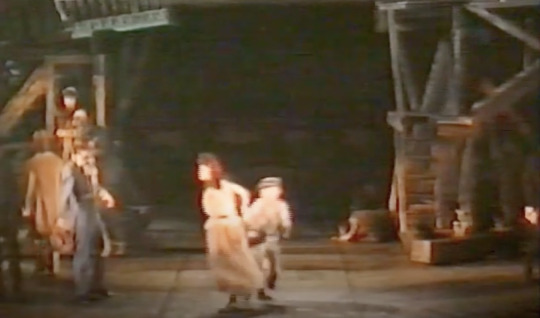
Jayne Draper's Éponine rudely shoves Gavroche in "Look Down."
Usually, during Gavroche's lines about Éponine in "Look Down," one of two things happens. Either Montparnasse comes on to Éponine but she fights him off, establishing her toughness, or else she exchanges friendly, teasing gestures with Gavroche, establishing her lively, playful nature. Neither happens here. Instead, it looks like Gavroche tries to pal around with her, but she just shoves him aside before wandering off. Now, the video quality is abysmal, so we can’t see the actors’ facial expressions. Maybe that shove was more playful than it looks, or maybe it was protective – Éponine trying to keep her little brother away from the unsavory “work” their parents force on her. But I wonder if they were trying to make Éponine still seem like a rude brat at first, like she was as a child, only to reveal her sympathetic side gradually through her love for Marius. I just wish I could see her face clearly to know for sure!
Honorable Mentions:
*In the Work Song, Martin Smith’s Valjean shields the “I know she’ll wait…” convict from being beaten by the warden. Even before he meets the Bishop, we see his heroic instincts.
*In "Confrontation," Clive Carter's Javert taunts Valjean with a "Yes, bring it on!" hand gesture when Valjean first threatens him with the chair, only to skitter backward in shock and fear when Valjean reminds him of his strength by breaking it.
#les mis#les miserables#recordings#bootlegs#standout moments#audio recordings#video recordings#1985#1986#1987#london#broadway#tel aviv#szeged
22 notes
·
View notes
Text

Szeged Church - HUNGARY
60 notes
·
View notes
Text
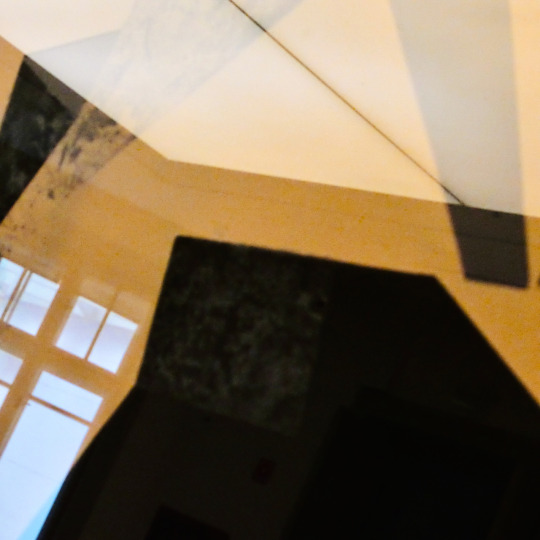
17 notes
·
View notes
Text

Cathedral Square, Szeged, 1939. From the Budapest Municipal Photography Company archive.
170 notes
·
View notes
Text
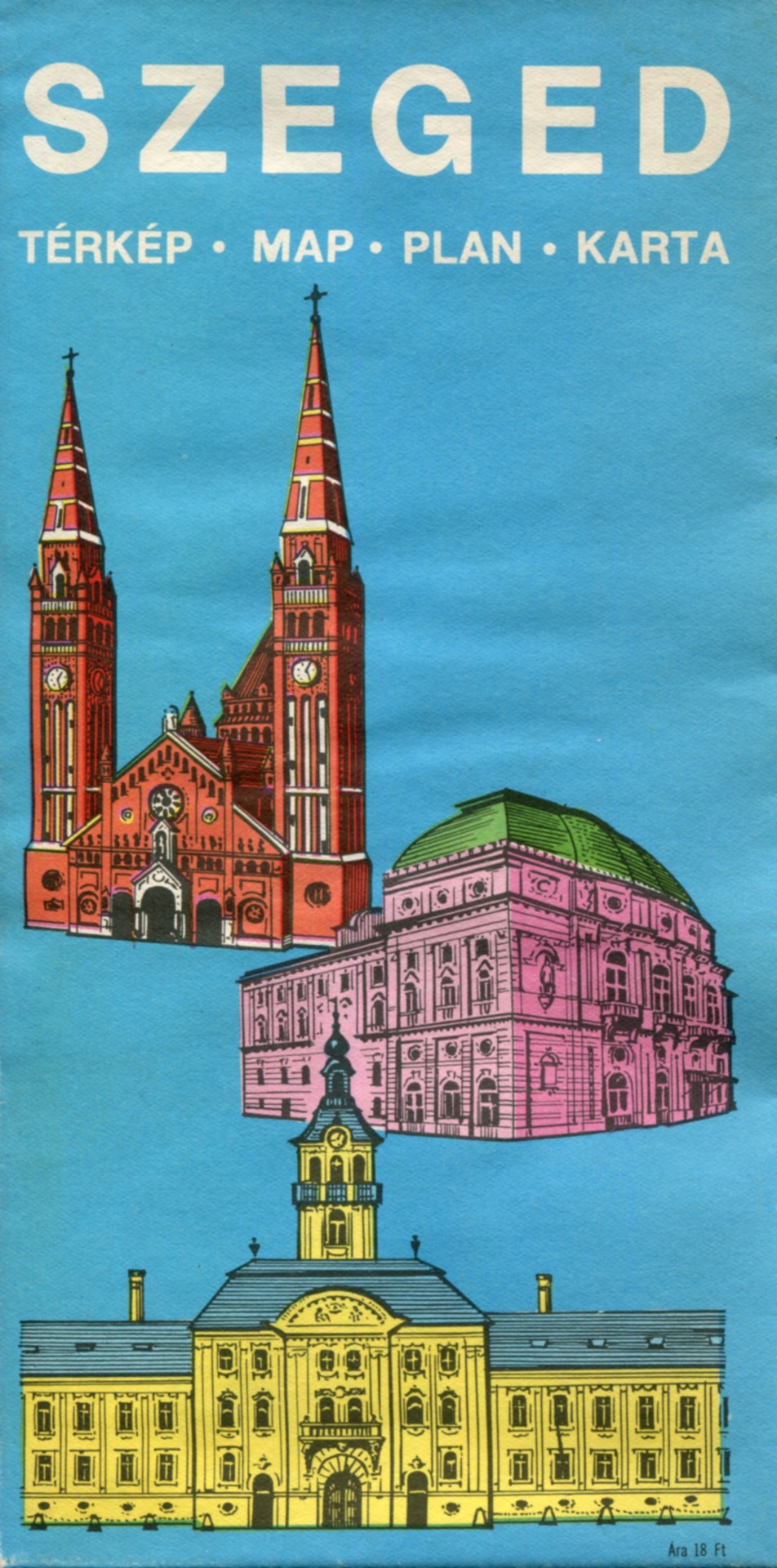
Map of Szeged, Hungary 1970s
96 notes
·
View notes
Text
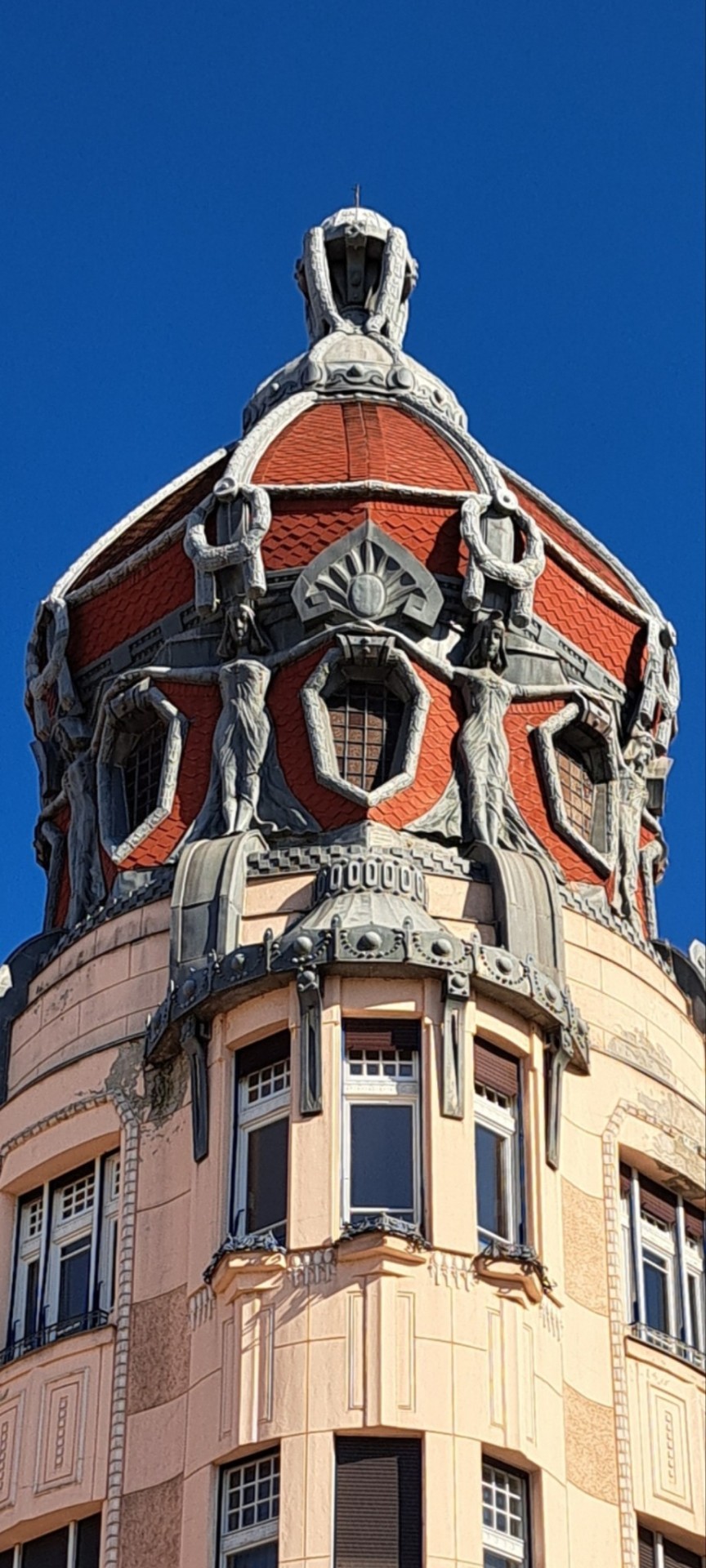
Szeged, Hungary
17 notes
·
View notes
Text
Standout Moments from "Les Misérables" Recordings (audio and video), #6
1987 Szeged proshot video
Vikidál Gyula (Jean Valjean), Makrai Pál (Javert), Kútvölgyi Erzsébet (Fantine), Szombathy Gyula (Thénardier), Hámori Ildikó (Mme. Thénardier), Nagy Anikó (Éponine), Sasvári Sándor (Marius), Kaszás Attila (Enjolras), Csarnóy Zsuzsa (Cosette)

Vikidál Gyula’s tearful “Bring Him Home.”
No, believe it or not, I didn’t choose the end of “Who Am I?” That’s the most unintentionally funny moment, but the real standout moment comes later. This is another non-replica production, with some unusual musical choices. As Jean Valjean, Vikidál Gyula is a rugged-voiced rock singer with a baritone range, so he can’t sing the high notes with the soaring sweetness of other Valjeans. (This is why at the end of “Who Am I?” he shrieks “ONE!!!!!” in the most hilariously melodramatic way instead of singing the note.) How does he cope with “Bring Him Home,” then? He acts his way through the song. He cuts notes short, sing-talks some lines, wails other lines, and lets his voice crack and go off pitch. Through at least half the song he sounds as if he’s crying. It’s not a pretty rendition, but it vividly conveys Valjean’s desperation to save Marius for Cosette’s sake, and his anguish in knowing he’ll lose Cosette and in facing his own mortality.
Honorable Mentions (Serious):
*Near the end of “Attack on Rue Plumet,” as Marius introduces Cosette to Éponine, Cosette reaches out her hand to Éponine, but she pulls away. But then Marius takes both their hands and joins them together: he wants his two girls to be friends, having no idea of the history between them.
*Grantaire sings “If I die, I die with you” as a solo line, then clasps hands with Enjolras. Unfortunately, for some reason Grantaire is cast as a gray-haired, bearded old man in this production, but at least they gave him this.
Honorable Mention (Funny):
One guess. It never gets old.
15 notes
·
View notes
Text

S Z E G E D
24 notes
·
View notes
Text
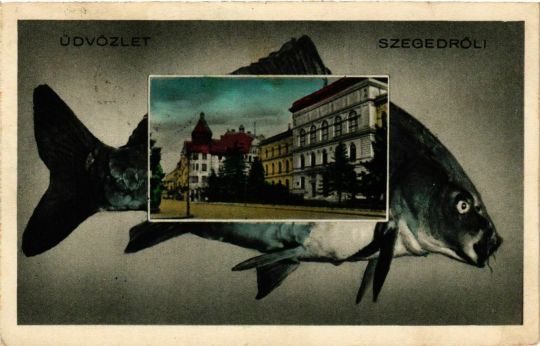
Greetings from Szeged, Hungary
Hungarian vintage postcard
#postal#greetings#hungarian#vintage#postkaart#ansichtskarte#photo#hungary#tarjeta#ephemera#szeged#sepia#postkarte#carte postale#briefkaart#photography#postcard#historic
9 notes
·
View notes

